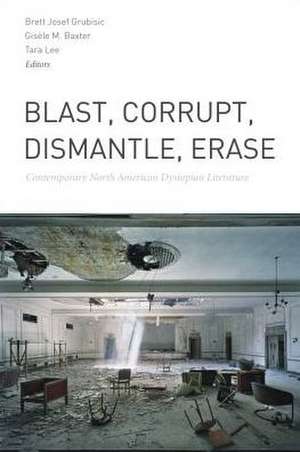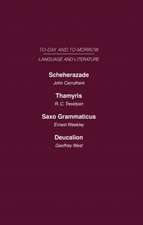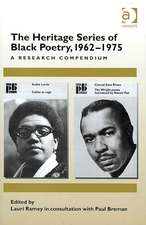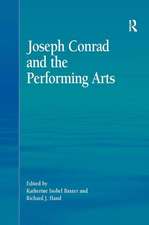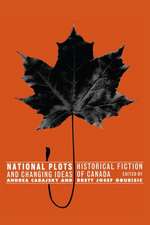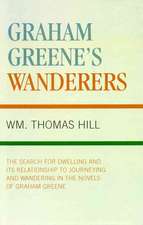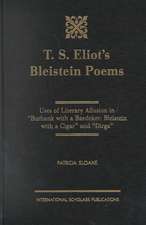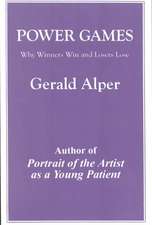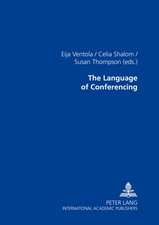Blast, Corrupt, Dismantle, Erase
Editat de Brett Joseph Grubisic, Gisele M. Baxter, Tara Leeen Limba Engleză Paperback – 30 apr 2014
What do literary dystopias reflect about the times? In "Blast, Corrupt, Dismantle, Erase, "contributors address this amorphous but pervasive genre, using diverse critical methodologies to examine how North America is conveyed or portrayed in a perceived age of crisis, accelerated uncertainty, and political volatility.
Drawing from contemporary novels such as Cormac McCarthy s "The Road," Neil Gaiman s "American Gods," and the work of Margaret Atwood and William Gibson (to name a few), this book examines dystopian literature produced by North American authors between the signing of NAFTA (1994) and the tenth anniversary of 9/11 (2011). As the texts illustrate, awareness of and deep concern about perceived vulnerabilities ends of water, oil, food, capitalism, empires, stable climates, ways of life, non-human species, and entire human civilizations have become central to public discourseover the same period.
By asking questions such as What are the distinctive qualities of post-NAFTA North American dystopian literature? and What does this literature reflect about the tensions and contradictions of the inchoate continental community of North America? "Blast, Corrupt, Dismantle, Erase "serves to resituate dystopian writing within a particular geo-social setting and introduce a productive means to understand both North American dystopian writing and its relevant engagements with a restricted, mapped reality. "
Preț: 378.33 lei
Nou
72.40€ • 77.41$ • 60.36£
Carte tipărită la comandă
Livrare economică 17 aprilie-01 mai
Specificații
ISBN-10: 1554589894
Pagini: 450
Ilustrații: 2 b/w illus
Dimensiuni: 148 x 229 x 29 mm
Greutate: 0.7 kg
Editura: Wilfrid Laurier University Press
Notă biografică
Cuprins
Table of Contents
Blast, Corrupt, Dismantle, Erase: Contemporary North American Dystopian Literature, edited by Brett Josef Grubisic, Gisèle M. Baxter, and Tara Lee
Introduction | Brett Josef Grubisic, Giséle M. Baxter, and Tara Lee
PART I Altered States
The Man in the Klein Blue Suit: Searching for Agency in William Gibson's Bigend Trilogy | Janine Tobeck
The Cultural Logic of Post-Capitalism: Cormac McCarthy's The Road and Popular Dystopia | Carl F. l. Miller
Logical Gaps and Capitalism's Seduction in Larissa Lai's Salt Fish Girl | Sharlee Reimer
"The Dystopia of the Obsolete": Lisa Robertson's Vancouver and the Poetics of Nostalgia | Paul Stephens
Post-Frontier and Re-Definition of Space in Tropic of Orange | Hande Tekdemir
Our Posthuman Adolescence: Dystopia, Information Technologies, and the Construction of Subjectivity in M.T. Anderson's Feed | Richard Gooding
PART II Plastic Subjectivities
Woman Gave Names to All the Animals: Food, Fauna, and Anorexia in Margaret Atwood's Dystopian Fiction | Annette Lapointe
The End of Life as We Knew It: Material Nature and the American Family in Susan Beth Pfeffer's Last Survivors Series | Alexa Weik von Mossner
"The Treatment for Stirrings": Dystopian Literature for Adolescents | Joseph Campbell
Imagining Black Bodies in the Future | Gregory Hampton
Brown Girl in the Ring as Urban Policy | Sharon DeGraw
PART III Spectral Histories
Archive Failure? Cielos de la Tierra's Historical Dystopia | Zac Zimmer
Love, War, and Mal de Amores: Utopia and Dystopia in the Mexican Revolution | María Odette Canivell
Culture of Control/Control of Culture: Anne Legault's Récits de Médilhault | Lee Skallerup Bessette
The Sublime Simulacrum: Vancouver in Douglas Coupland's Geography of Apocalypse | Robert McGill
Neoliberalism and Dystopia in U.S.-Mexico Borderlands Fiction | Lysa Rivera
America and Books are "Never Going to Die": Gary Shteyngart's Super Sad True Love Story as a New York Jewish "Ustopia" | Marleen S. Barr
In Pursuit of an Outside: Art Spiegelman's In The Shadow of No Towers and the Crisis of the Unrepresentable | Thomas Stubblefield
Homero Aridjis and Mexico's Eco-Critical Dystopia | Adam Spires
PART IV Emancipating Genres
Lost in Grand Central: Dystopia and Transgression in Neil Gaiman's American Gods | Robert Tally
Which Way is Hope? Dystopia into the (Mexican) Borgian Labyrinth | Luis Gómez Romero
Dystopia Now: Examining the Rach(a)els in Automaton Biographies and Player One | Kit Dobson
The Romance of the Blazing World: Looking back from CanLit to SF | Owen Percy
"It's not power, it's sex": Jeanette Winterson's The PowerBook and Nicole Brossard's Baroque at Dawn | Helene Staveley
Another Novel is Possible: Muckraking in Chris Bachelder's U.S.! and Robert Newman's The Fountain at the Center of the World | Lee Konstantinou
About the Contributors
